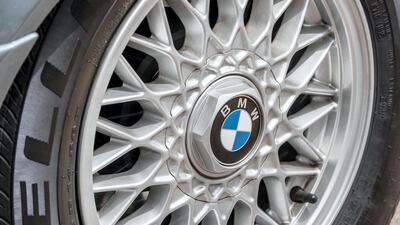BMW raised prices of some mid-sized sport utility vehicles in China, following Tesla as car makers try to offset the cost of higher tariffs triggered by the country’s trade war with the US.
The German luxury-car maker said Sunday it would increase suggested retail prices for X5 and X6 models, built in Spartanburg, South Carolina, by 4 per cent to 7 per cent in China. Tesla raised prices for its Model S and Model X earlier this month after China’s additional tariffs on US-made cars kicked in July 6.
US President Donald Trump has imposed duties on billions of dollars in Chinese imports and has threatened more, prompting retaliatory measures from Beijing. Car makers are among the trade war’s most visible victims, though the effects are rippling through other industries including soybean farmers, industrial chemical manufacturers and even lobster trap-makers.
The additional tariffs are forcing car makers to absorb the costs or pass them on to customers. BMW had warned earlier that it wouldn’t be able to absorb the higher levies completely and was calculating the necessary price increases. With the higher prices, an X5 sells for about the equivalent of $107,000 in China, according to the company’s Chinese website.
_______________
Read more:
Volkswagen poaches top BMW exec with Audi chief indisposed
Audi chief Rupert Stadler in custody over 'dieselgate' scandal
VW fined €1bn by German authorities over dieselgate
_______________
Some versions of Tesla’s Model S now go for more than $200,000 in China, and some editions of the Model X can be as much as $230,000.
Cars made in the US face a total tariff of 40 per cent in China, compared with 15 per cent for autos imported from other countries. Manufacturers such as Tesla and BMW are starting or expanding production in China, the world’s largest car market, to mitigate the effects of trade tensions and reduce shipping costs.
Ford Motor, maker of the Lincoln luxury vehicles, reiterated on Monday that it has no current plans to increase the sticker prices on its import line-up in China. Daimler last month warned that the higher tariffs were hurting demand for its lucrative SUVs like the US-made GLE.
BMW’s price increase in China was reported earlier by Reuters. The Spartanburg plant, BMW’s only US factory, exported more than 70 per cent of the roughly 371,000 units manufactured last year. Around a quarter of BMW X models produced at the US plant went to China, the biggest market for the automaker’s American exports.

